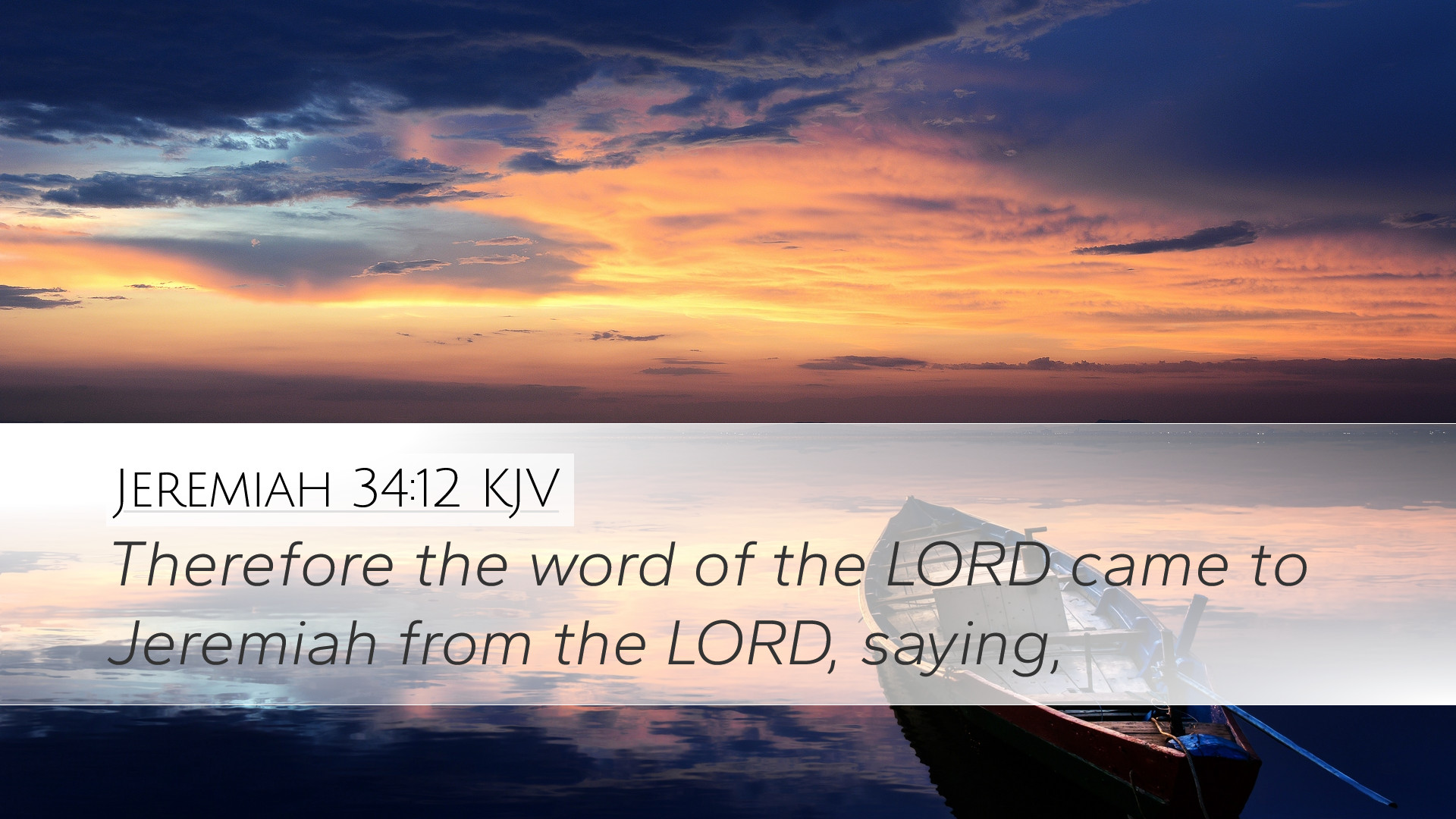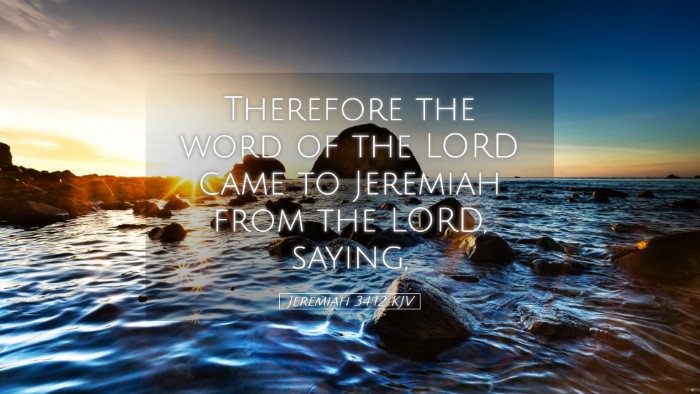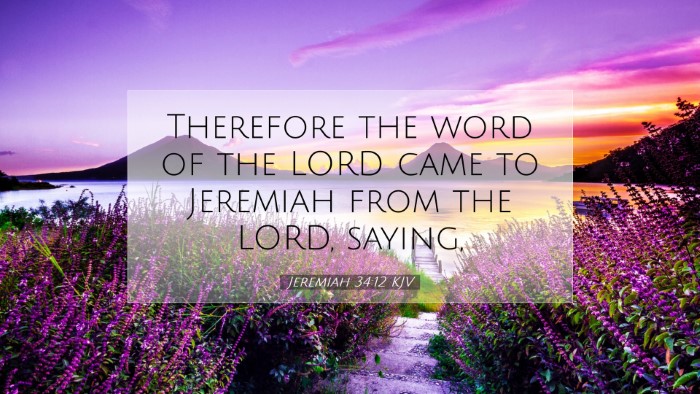Bible Commentary on Jeremiah 34:12
Introduction
Jeremiah 34:12 presents a poignant moment in the narrative of Israel's history, divulging themes of covenant, disobedience, and the consequences of turning away from God's commands. In this verse, God addresses the people of Judah through the prophet Jeremiah, reminding them of their obligations under the covenant made with Him. This commentary synthesizes insights from several public domain commentaries to better understand the theological implications and applications of this passage.
Verse Text
"Therefore the word of the Lord came to Jeremiah from the Lord, saying, "
Contextual Background
Jeremiah prophesies in a time of significant turmoil for Judah. The Babylonian siege of Jerusalem looms, and the people are grappling with their failures to adhere to divine expectations. This context is critical for understanding God's plea and the severe implications of their disobedience.
Exegesis of Jeremiah 34:12
1. Divine Revelation
Matthew Henry notes the importance of "the word of the Lord". This phrase emphasizes that the message Jeremiah conveys is divinely inspired, not human invention. The prophetic utterance signifies God's direct engagement with His people.
2. The Mention of the Covenant
Adam Clarke points out that this verse reflects on the breached covenant. The historical background during which God's people made covenants reflected profound pledges to adhere to His laws. This revelation stands as a reminder of their obligations, encapsulating both the spiritual and moral dimensions of the covenant.
Theological Implications
This verse serves as a crucial theological reflection on the nature of God's expectations from His people.
- Covenant Faithfulness: The need for covenant fidelity echoes throughout scripture. Barnes emphasizes the seriousness of Israel's failure to uphold their end of the covenant, illustrating a relational disconnect between God and His people.
- Judgment and Mercy: This moment encapsulates the tension between divine judgment and mercy. God desires to extend grace but must also uphold justice. Jeremiah serves as the intermediary, reminding the people of the mercy available through repentance.
Historical and Cultural Context
Understanding the sociopolitical fabric during Jeremiah's ministry sheds light on the lived realities of the Judeans. Matthew Henry describes the cultural backdrop of idolatry and social injustice as pervasive during this period, challenging the covenant relationship they were supposed to maintain with God. The societal norms of forsaking God's laws led to inevitable judgment.
Practical Applications
This verse is rich in applications for contemporary readers, especially for pastors and theologians reflecting on the nature of their relationship with God.
- Examination of Faithfulness: Believers are encouraged to examine their faithfulness in their covenant relationship with God. Are they upholding their commitments in light of contemporary challenges?
- Call to Repentance: There is an essential recognition that repentance is a pathway to restoring broken relationships with God. This teaching remains central to pastoral care and teaching today.
Conclusion
Jeremiah 34:12 invites its audience to reflect deeply on their covenant relationship with God—a theme that persists through all Scripture. The gravity of God's words as proclaimed through Jeremiah is not merely historical; it reverberates in modern faith practices, echoing the call to covenant faithfulness, humility, and repentance. Such insights offer profound encouragement to scholars, pastors, and laypeople alike, urging a closer walk with the Almighty.


